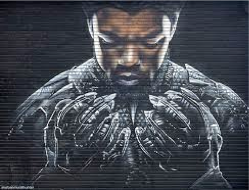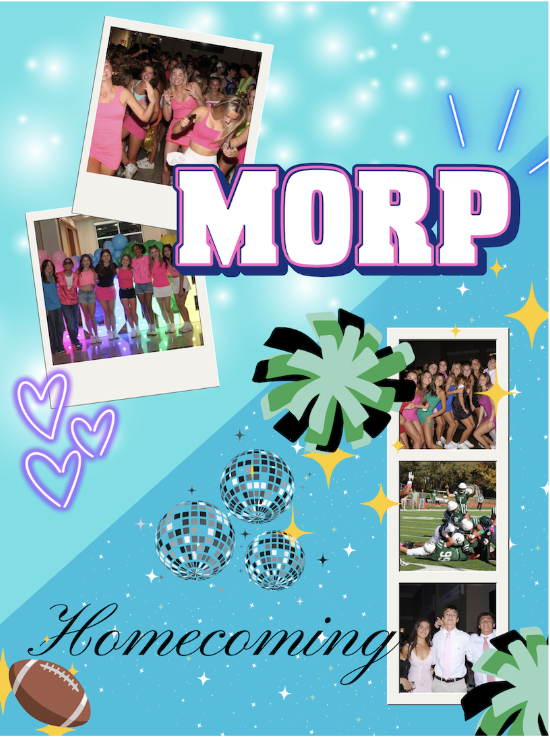Black Panther: Wakanda Forever’ Review: Ethereal tribute breathes life into Marvel series

An image honoring deceased Black Panther played by Chadwick Boseman who is now succeded by the princess Shuri, played by Letitia Wright. Credit: Flickr
“Without the Black Panther, Wakanda will fall.” In the wake of Black Panther star Chadwick Boseman’s death due to colon cancer in 2020, many wondered about the future of the franchise. “Black Panther” was much more than just another super- hero movie–it embraced themes of race and gender as well as allowed for more representation than ever before seen in the Marvel Cinematic Universe. Cheers of excitement followed the announcement of a second installment in the “Black Panther” franchise, but many worried that the movie would not be able to live up to its predecessor. Chadwick Boseman had captivated millions of viewers with his portrayal of T’Challa/the Black Panther, the fictional kingdom of Wakanda’s protector. Without him, many believed a sequel would simply be impossible.
Originally released in November 2022, “Black Panther: Wakanda Forever” had been highly pub- licized for months. With confirmation of a sequel coming in mid-2019 and numerous trailers ap- pearing in early 2022, Marvel fans across the globe waited in enthusiasm for the film to be released. Excitement for “Wakanda Forever” was especially accelerated by the success of the original “Black Panther,” which grossed over $1.3 billion in the box office to currently sit at the 15th highest-grossing film of all time. Among fans’ anticipation for the release was how Boseman’s sudden death would be appropri- ately and respectfully addressed in the film, and how the franchise would move forward following the loss of such an integral actor.
“Black Panther: Wakanda Forever” beautifully honors Chadwick Boseman through touching tributes and enthralling performances by the cast, specifically Angela Bassett and Letitia Wright, who, respectively, play Boseman’s onscreen mother and sister. Bassett and Wright both deliver heart-wrench- ing moments of grievance for the lost Black Panther, teaching lessons of personal loss to the audience. Furthermore, King T’Challa’s funeral scene is one of brilliance, highlighting sorrow over loss, but also celebration of one’s life. Although the movie does not focus on T’Challa’s death, but rather the rise of a new hero, the poignant tributes to Boseman are what will most be remembered about “Wakanda Forever.”
However, what strikes the hardest about “Black Panther: Wakanda Forever” are the political messages carefully laid within the plot. The “antagonists” of the film demonstrate the importance of perspective. Who Marvel labels as the “bad guy” is in reality a misunderstood underwater society known as Talokan. “Wakanda Forever” quickly takes on themes of geo- political relations through the outside world’s reac- tions toward the advanced societies of Wakanda and Talokan. Both groups are representative of successful minority-led cultures who the outside world fears and pits against one another in a desperate attempt to curtail their power. Marvel’s take on post-colonial societies and political prowess is strongest in “Black Panther: Wakanda Forever,” and reveals important messages of international relations to viewers that Marvel has recently struggled to portray.
Past political theming, Wakanda Forever has also recently been praised for its celebration of Meso- American culture. The “Black Panther” franchise has a history of portraying underrepresented cultures on the silver screen, with the first installment mainly focusing on sub-Saharan customs. It is referred to as one of the most major empowering tales of Black cul- ture in Hollywood. Through the introduction of the Talokan people, “Black Panther: Wakanda Forever” once again shines light on historic societies, this time on the Mayan and Aztec Empires in central Mexico. “Wakanda Forever” pays tribute to these groups by incorporating aspects of Mayan and Aztec mythology, architecture, and language into the city of Talokan and the Talokanil people. When asked about his character Namor, ruler of the Talokanil, actor Tenoch Huerta revealed to “Inverse Magazine,” “just the char- acter being brown-skinned, having these Mesoamer- ican characters. The representation is strong enough to send a strong message to the world.” This is indeed what caught the attention of many viewers who felt as though their culture had finally been represented in a truthful, breathtaking way in major cinema.
In what can only be described as a murky phase of the Marvel Cinematic Universe, “Black Panther: Wakanda Forever” provides a beam of hope for the future of Marvel. Filled to the brim with a stellar cast, incredible CGI effects, and a complex storyline, Marvel redeems some of its recent failures (ahem… “Thor: Love and Thunder”) with this stunning film. Viewers are thrown headfirst into an ethereal world while simultaneously pondering modern political is- sues. At the end of the day, “Black Panther: Wakanda Forever” lives up to its predecessor as a celebration of culture and the Black Panther.

Isabella is currently a junior at Archmere. She enjoys playing volleyball and swimming, along with listening to music and going to the beach.




















